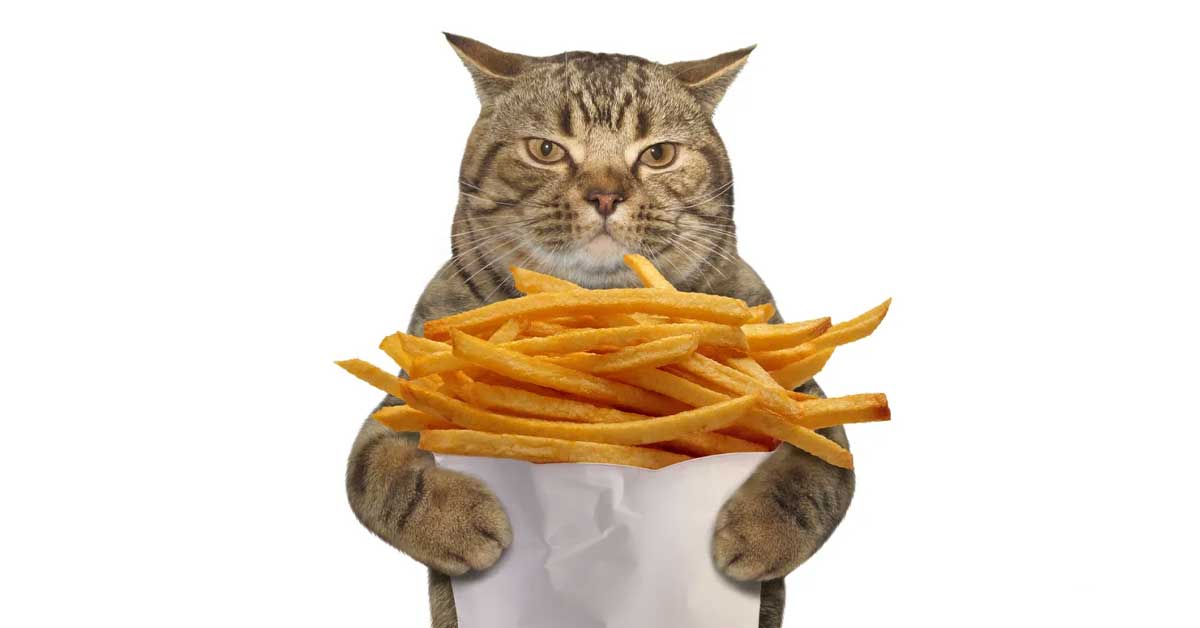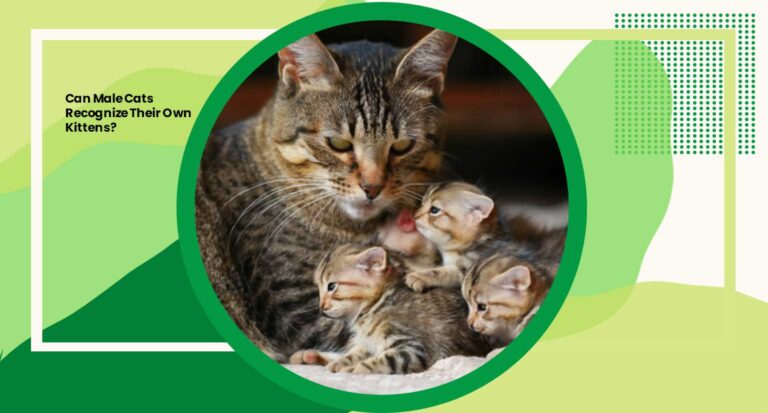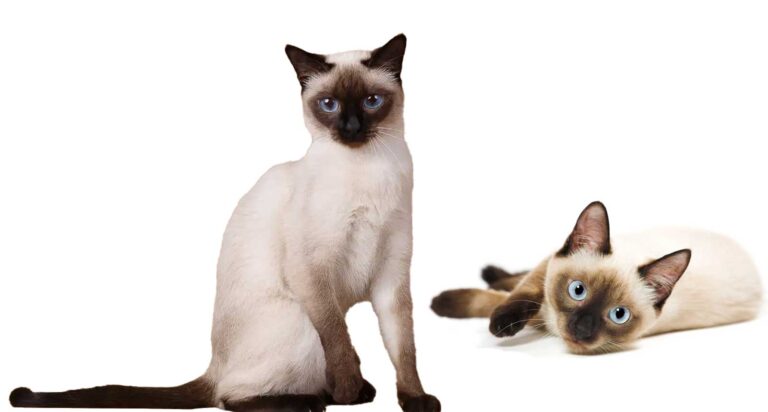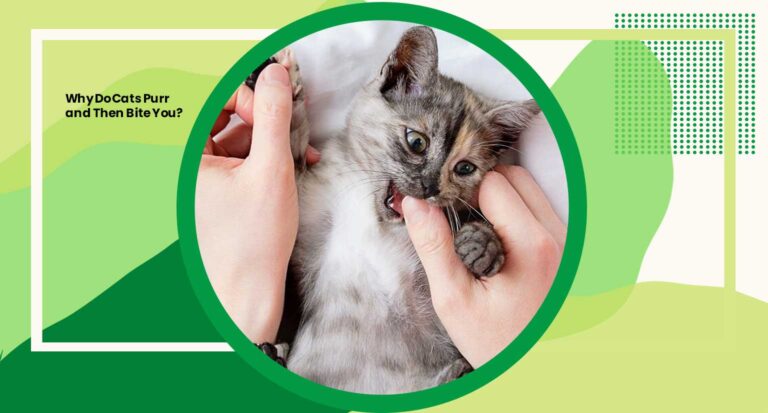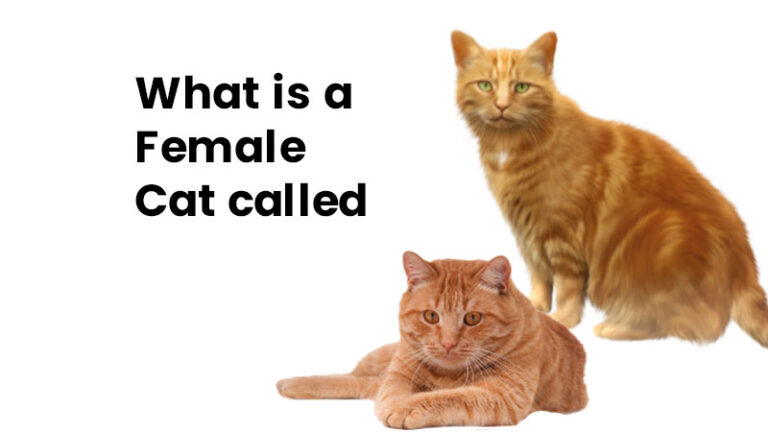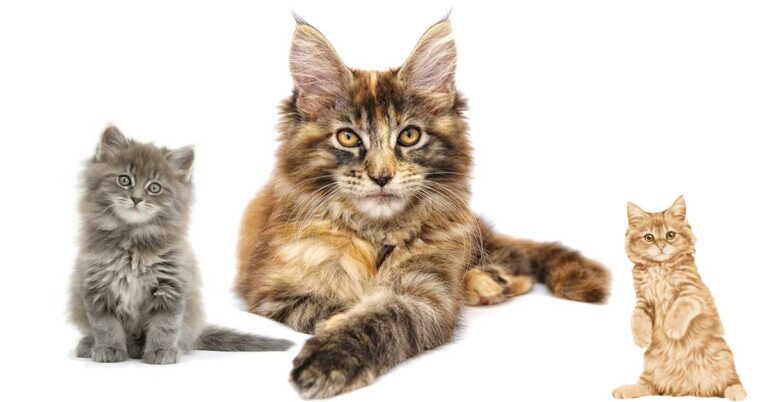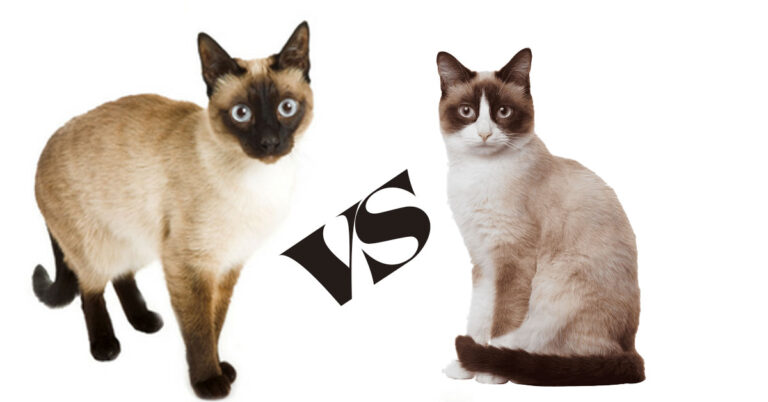Can Cats Eat French Fries
The question “Can cats eat french fries?” might seem unusual, but it is a common curiosity among cat owners.
Allowing our feline friends to share in our mealtime pleasures seems quite harmless. However, when it comes to feeding human food to pets, it’s important to understand what is safe for them to consume.
In this discussion, we will explore if cats can indeed eat french fries, looking at nutritional needs of cats and potential impacts on their health.
What are French Fries?
French fries, known as chips in some parts of the world, are a popularly consumed food item across the globe.
Originating from Belgium, they are prepared by cutting potatoes into thin, long strips and then deep frying them until they turn golden-brown and crispy.
Typically served with a variety of dips and sauces, they have become a staple side dish in fast food and casual dining restaurants worldwide.
Despite their widespread popularity, their high fat and salt content make them a less than ideal choice for cats or other pets.
Can Cats Eat French Fries?
While small amounts of french fries are unlikely to cause severe harm to a cat, they are not a recommended treat.
Cats are obligate carnivores and their bodies require a diet primarily made up of meat. French fries, loaded with salt and oil, lack the essential nutrients that cats need for their wellbeing.
Moreover, the high salt content can lead to sodium ion poisoning in cats, and the oil used in frying can contribute to obesity and related health problems.
Therefore, it’s best to stick to cat-specific treats and a balanced feline diet to ensure your cat’s optimal health.
Are they safe for cats to eat?
In terms of safety, consuming small quantities of french fries is unlikely to pose an immediate threat to a cat’s health.
However, their regular or large-scale consumption can indeed be harmful. The high levels of sodium found in salt can lead to sodium ion poisoning, a condition that can cause symptoms such as vomiting, diarrhea, high temperature, and seizures, which could potentially be fatal in severe cases.
Additionally, the fats and oils used in the preparation of fries can lead to weight gain, obesity, and associated health issues such as diabetes and heart disease.
Consequently, while a small nibble might not be immediately harmful, french fries should not be a part of a cat’s regular diet due to their potential to cause long-term health problems.
Types of French Fries and their nutritional values
There are several types of French fries, each with its unique preparation method and nutritional value.
- Standard French Fries: These are the most common type of fries. They are cut into thin strips and deep-fried. A medium serving (117g) of French fries typically contains around 365 calories, 17g of fat, and around 63mg of sodium.
- Curly Fries: Recognizable by their spiral shape, these are often seasoned with a mix of spices before being deep-fried. A medium serving (110g) of curly fries contains approximately 365 calories, 18g of fat, and near 625mg of sodium.
- Crinkle-Cut Fries: These fries are cut in a wavy pattern and then deep-fried. A medium serving (113g) of crinkle-cut fries usually has about 365 calories, 17g of fat, and around 590mg of sodium.
- Sweet Potato Fries: Considered a healthier alternative, these are made from sweet potatoes instead of the traditional white potatoes. A medium serving (114g) of sweet potato fries contains about 150 calories, 8g of fat, and about 570mg of sodium.
Common Health Risks for Cats that Eat French Fries
Cats that consume French fries regularly face several health risks:
- Obesity: The high fat and calorie content in French fries can lead to unhealthy weight gain and obesity in cats. This can further result in associated issues such as diabetes, arthritis, and heart disease.
- Sodium Ion Poisoning: The high salt content can lead to sodium ion poisoning. Symptoms may include vomiting, diarrhea, high fever, tremors, and seizures. In severe cases, it can even be fatal.
- Digestive Issues: Due to their carnivorous nature, cats’ digestive systems are not designed to process high carbohydrate foods like potatoes. Regular consumption can therefore lead to gastrointestinal upset, including vomiting and diarrhea.
- Nutritional Deficiencies: French fries do not provide the essential nutrients that cats need for their overall health and wellbeing. A diet high in such foods and low in meat-based nutrition can result in deficiencies and health complications.
Tips for Preparing Healthy Home-made French Fries for Cats
If you still wish to share the experience of eating fries with your feline friend, consider making a healthier, cat-friendly version at home. Here are some tips:
- Use Sweet Potatoes: Sweet potatoes are a healthier choice over regular potatoes. They offer more nutritional benefits and are less likely to cause digestive issues in cats. However, they should still be offered in moderation.
- Avoid Salt: As cats are highly sensitive to sodium, avoid adding salt to the fries.
- Opt for Baking Instead of Frying: Baking the fries instead of deep frying can significantly reduce the fat content.
- No Spices or Seasonings: Cats’ digestive systems are not equipped to handle spices or seasonings, which could cause upset stomachs. Keep it simple.
- Serve in Small Quantities: Even when prepared healthily, these fries should still only be a rare treat and not a regular part of your cat’s diet. Remember, a cat’s primary diet should be carnivorous.
Alternatives to French Fried Potatoes That Can Be Safely Consumed by Cats
If you’re looking for alternatives to French fries that are safe for your feline friend, consider the following options:
- Plain Cooked Chicken or Turkey: Poultry is a great source of protein for cats and is much healthier than French fries. Remember to serve it unseasoned and in small, bite-sized pieces.
- Fish: Though it should be offered in moderation due to high levels of polyunsaturated fats, cooked fish such as salmon or tuna can be a tasty treat for cats.
- Pumpkin: Cooked pumpkin can be a healthy treat for cats and is beneficial for their digestive health. It should be served in small quantities and without any seasonings or additives.
- Peas: While not a substitute for meat, small amounts of cooked peas can make for a safe and nutritious treat.
- Commercial Cat Treats: These are formulated specifically for cats and are a safer choice than human food. They come in a variety of flavors and can be used sparingly alongside a balanced feline diet.
Signs of Intolerance to Certain Types of Foods, Including French Fries, in Cats
Cats may exhibit a variety of symptoms if they have a food intolerance or allergic reaction, including to foods like French fries.
These signs may appear immediately or may develop gradually over time:
- Vomiting or Diarrhea: These are common symptoms of food intolerance. If your cat is throwing up or has loose stools after consuming French fries or any other new food, it may be a sign of intolerance.
- Skin Irritations: Food intolerances can also manifest as skin problems. This might include itchy skin, redness, sores, or hair loss.
- Changes in Appetite: If your cat is refusing to eat or is eating less than usual, it could be a sign that certain foods are causing discomfort.
- Lethargy: A general lack of energy or decreased activity levels can often accompany food intolerance in cats.
- Behavioral Changes: Cats may become more irritable or aggressive if they are experiencing discomfort or pain due to food intolerance.
Conclusion
In conclusion, while the aroma and flavor of French fries may be tempting for both humans and pets, it’s important to understand the potential health risks associated with feeding fries to cats.
Their high fat and sodium content, combined with the nutritional deficiencies they can cause, make them an unsuitable choice for a cat’s diet.
If you wish to share this snack with your feline friend, preparing a cat-friendly version at home can be a healthier alternative.
Nevertheless, the safest and most nutritious treats for cats are those that align with their carnivorous dietary needs.
If you notice any signs of food intolerance in your cat, it’s best to consult a veterinarian to ensure their health and wellbeing.

